How to Study Effectively for Long Hours
Studying for long hours can be exhausting and ineffective, especially when you are stressed about the upcoming exam that you have little time to prepare for. Making your learning plan in advance is always recommended. However, 5-Minute Crafts has explained the factors that impact your effectiveness, as well as tips on how to optimize your studying when you have no other option but to study long hours.
A. Physical well-being
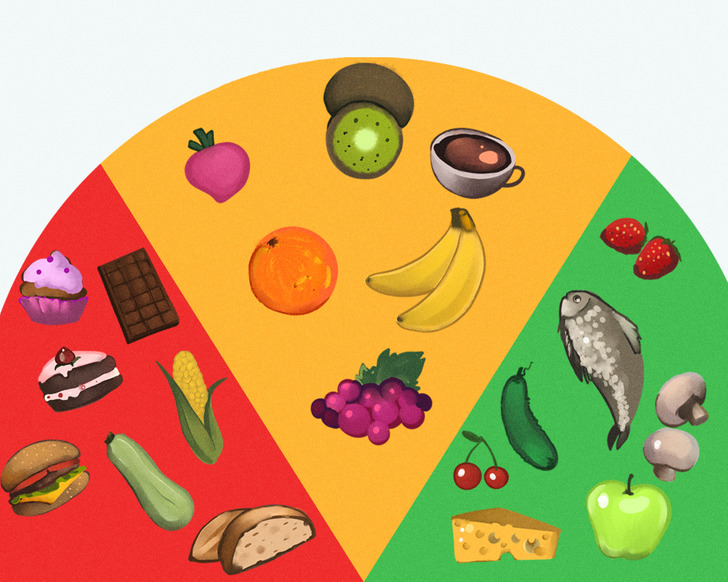
Studying is a process that drains a lot of energy. If you do not feel well, you’re less likely to study effectively.
1. Adjust your diet. We need to maintain our energy levels while studying. The best advice concerning diet would be to eat food with a low glycemic index as it releases energy slowly, like oats, salads, fruit, etc. On the other side, foods like pizza, chocolate, or a burger have a completely opposite effect, leaving us drowsy and tired. Make sure you eat light, with nuts, seeds, fruit, and wholegrain foods. Avoid fried food, fast food, sugars, and fats.
2. Be well-rested. While you sleep, new brain cells are generated. Do your best to sleep well before you start to study. Pulling an all-nighter before an exam is also far from a good idea.
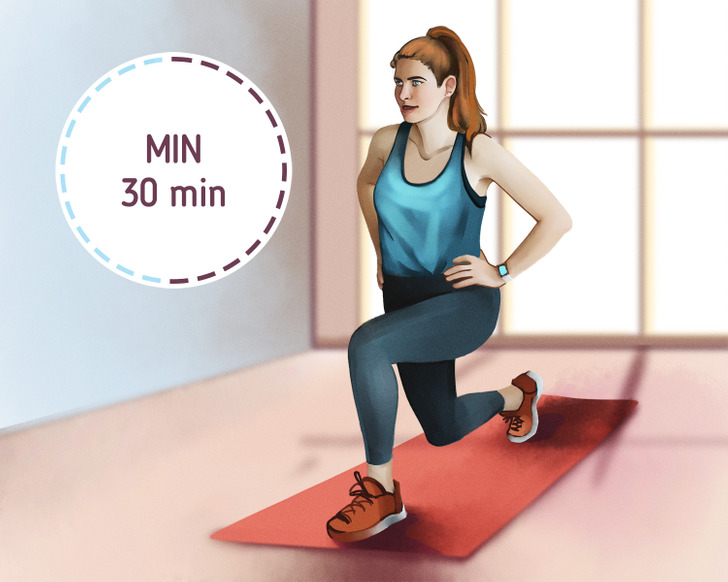
3. Take a nap. A power nap can do wonders in optimizing your performance. Try to limit your nap to around 40 minutes to avoid falling into a deep sleep and feeling groggy afterward.
4. Get some exercise. Scientific research has proven the benefits of physical activity in studying. Besides helping prevent depression and anxiety, exercise boosts your long-term memory and improves our ability lo learn and concentrate. It even makes you more alert and motivated. It is enough to sweat during some cardio activity for about 30 minutes to see an almost immediate effect.
B. Mindset and surroundings
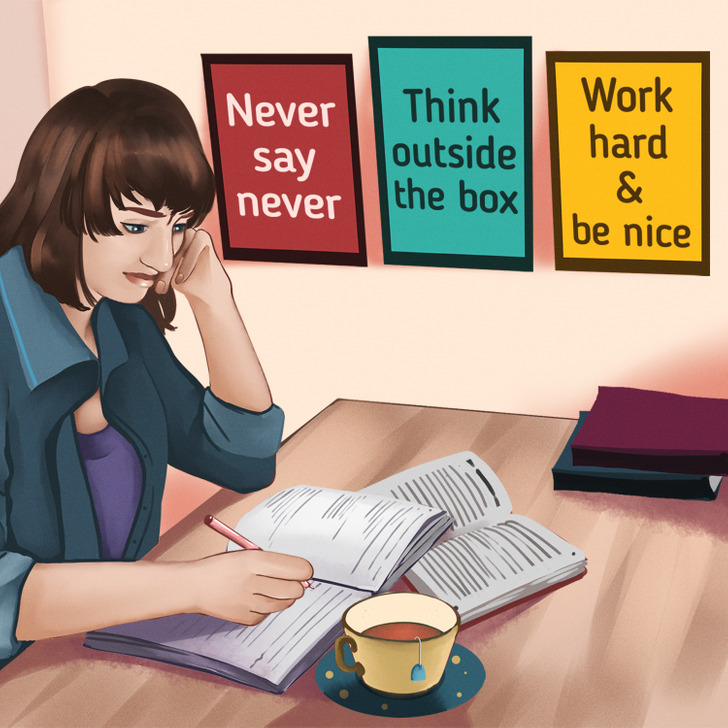
5. Convince yourself you can and should do it. You cannot pull off studying for long hours unless you are motivated. Start motivating yourself beforehand and be determined to commit to your goals. Write down your goals and keep them in sight so you can view them as a written reminder. Do your best to accomplish them.
6. Set realistic tasks and be strategic. To start off your studying process, you need to have practical goals. Pay most attention to achievable tasks, as well as those that will bring you a better score and those that you are behind on.
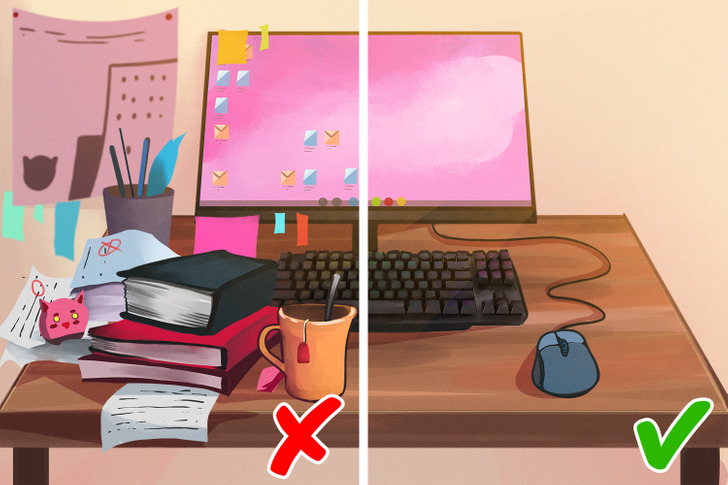
7. Eliminate any distractions. When you need to study effectively, you don’t have the luxury to lose your focus. Your surroundings should be helping you focus and not be distracting or sleep-inducing. This is why you should keep your phone at a distance or put it on silent.
8. Keep your studying space neat. Clutter and mess around you are a distraction while you study. Make sure you clean up the desk if you want to avoid stress and keep your thoughts in order as well. You can also try getting yourself pens, markers, or post-its you like because using them will make your studying environment more pleasant.
C. Schedule and studying methods
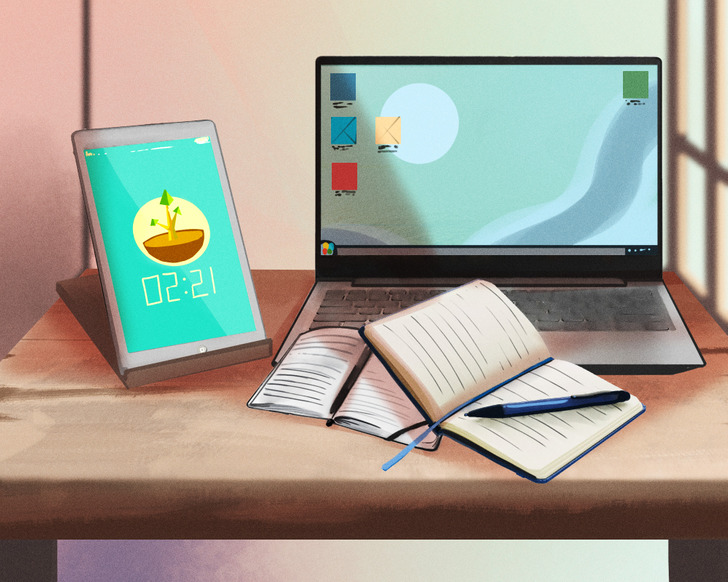
9. Optimize your schedule by identifying your peak hours. Some people have their mental energy at its highest level in the daytime, while others feel more productive and creative after midnight. This is an individual factor. Make sure you use this time to try to achieve maximum results and leave your easier tasks, such as calls, messaging, or home chores for a time when you feel least productive.
10. Bring your time management to a higher level. Remember that breaks are important because both your mind and your body need freshening up after intense study sessions. Make a strict schedule for regular short breaks or use productivity apps on your smartphone, such as Pomodoro apps, like the Forest app. This method will help you keep your studying goals on track without burning out.
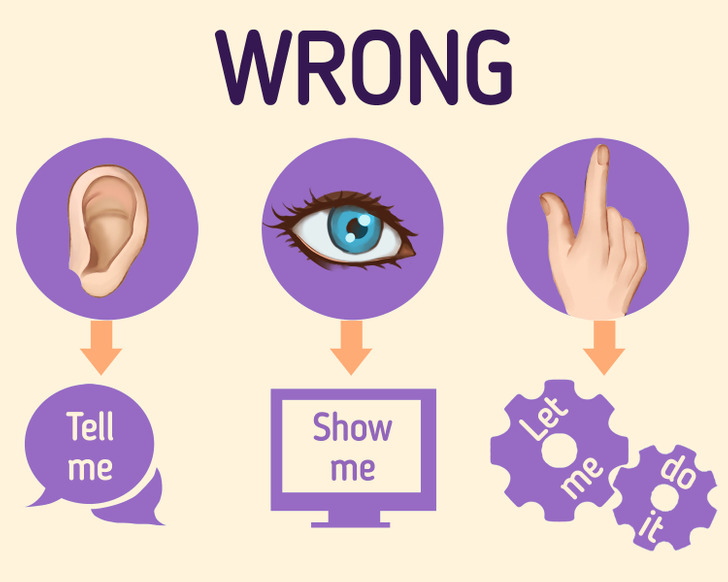
11. Add variations to avoid boredom. Shift to a different subject or topic each hour to avoid feeling monotony. For instance, if you’re studying biology, switch to chemistry or history after 1 hour of studying.
12. Do not rely on a single learning style. We have been hearing about different types of learners for decades already, such as visual, auditive, kinesthetic learners, and so on. Despite vastly expanded theories that each one of us has a different learning style, there is, however, no scientific evidence that proves that people learn better when taught in a way that corresponds to their own unique learning style. This is why you should think of all the diverse tactics you could try and experiment with them.